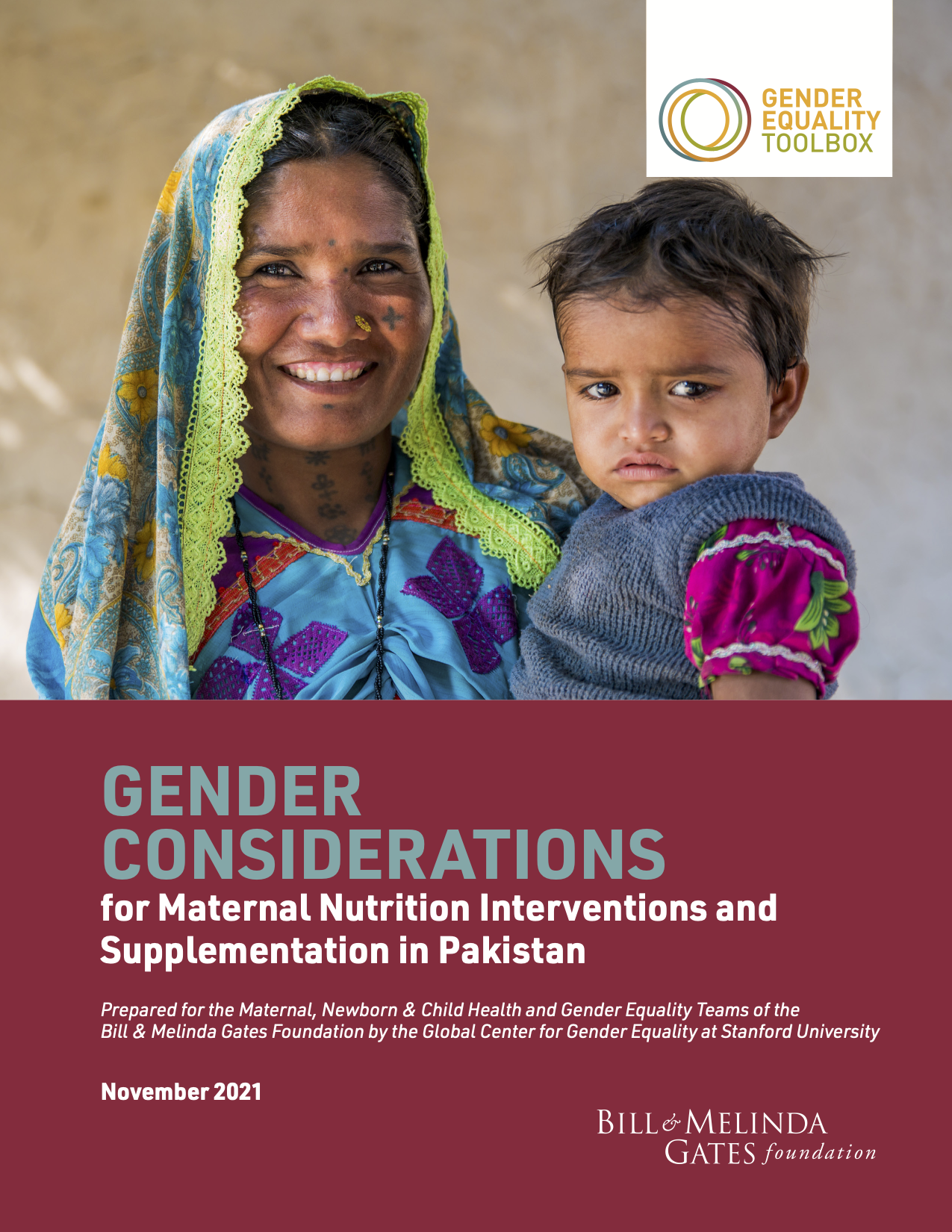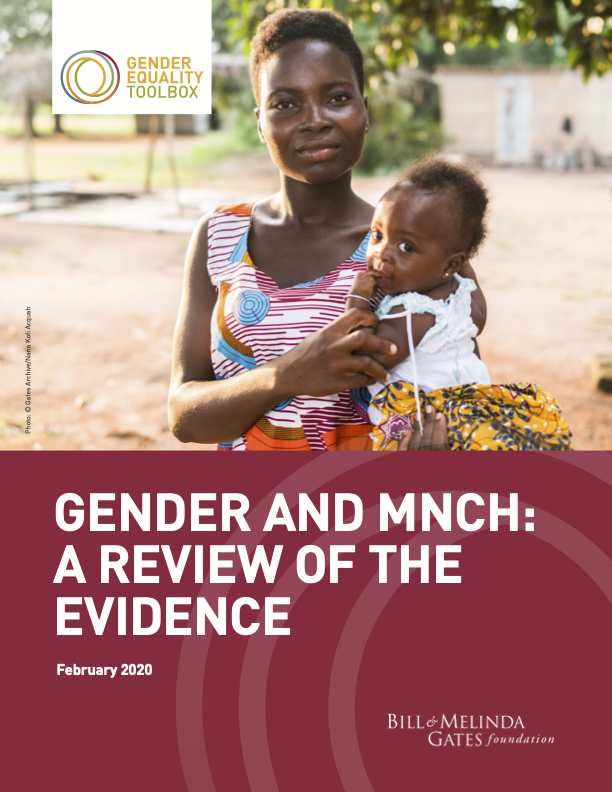
GENDER CONSIDERATIONS FOR MATERNAL NUTRITION INTERVENTIONS AND SUPPLEMENTATION IN PAKISTAN, NOVEMBER 2021
This brief provides gender-related insights to inform the design of interventions in Pakistan aiming to improve maternal nutrition, with a focus on supplementation. Analysis of Demographic and Health Survey data describes the heterogeneity by geography and socio-economic status in women’s decision-making, prenatal care use, and food consumption and expenditure patterns. The report assesses evidence on gender norms and practices in Pakistan related to food and pregnancy, along with a review of previous interventions that have engaged men to address maternal nutrition or maternal/reproductive health. The brief argues that maternal nutrition programs in Pakistan could leverage norms around men as providers to engage them as sources of support rather than gatekeepers, and that interventions should advocate for women’s health without contradicting prevailing feminine gender norms, which could generate rejection by gatekeepers.
DOWNLOAD GENDER CONSIDERATIONS FOR MATERNAL NUTRITION INTERVENTIONS AND SUPPLEMENTATION IN PAKISTAN

GENDER AND MNCH: A REVIEW OF THE EVIDENCE, FEBRUARY 2020
This report is the result of an evidence and landscape review commissioned by the Gates Foundation to better understand how gender inequalities influence a wide variety of maternal and newborn health (MNH) behaviors and outcomes across low and middle-income countries. Based on a systematic analysis of peer-reviewed academic literature, program reports, evaluations and case studies, as well as interviews with key stakeholders in the MNH health sector, it provides evidence on how gender inequality contributes to the vulnerability of pregnant and newly parenting women and girls and their newborns. It also highlights lessons learned from interventions that have addressed gender norms, including programs targeting maternal empowerment and men’s role in MNH to improve health outcomes. The review demonstrates that increased attention to gender in MNH programming by the Gates Foundation would be a very welcome and much needed contribution to the field.